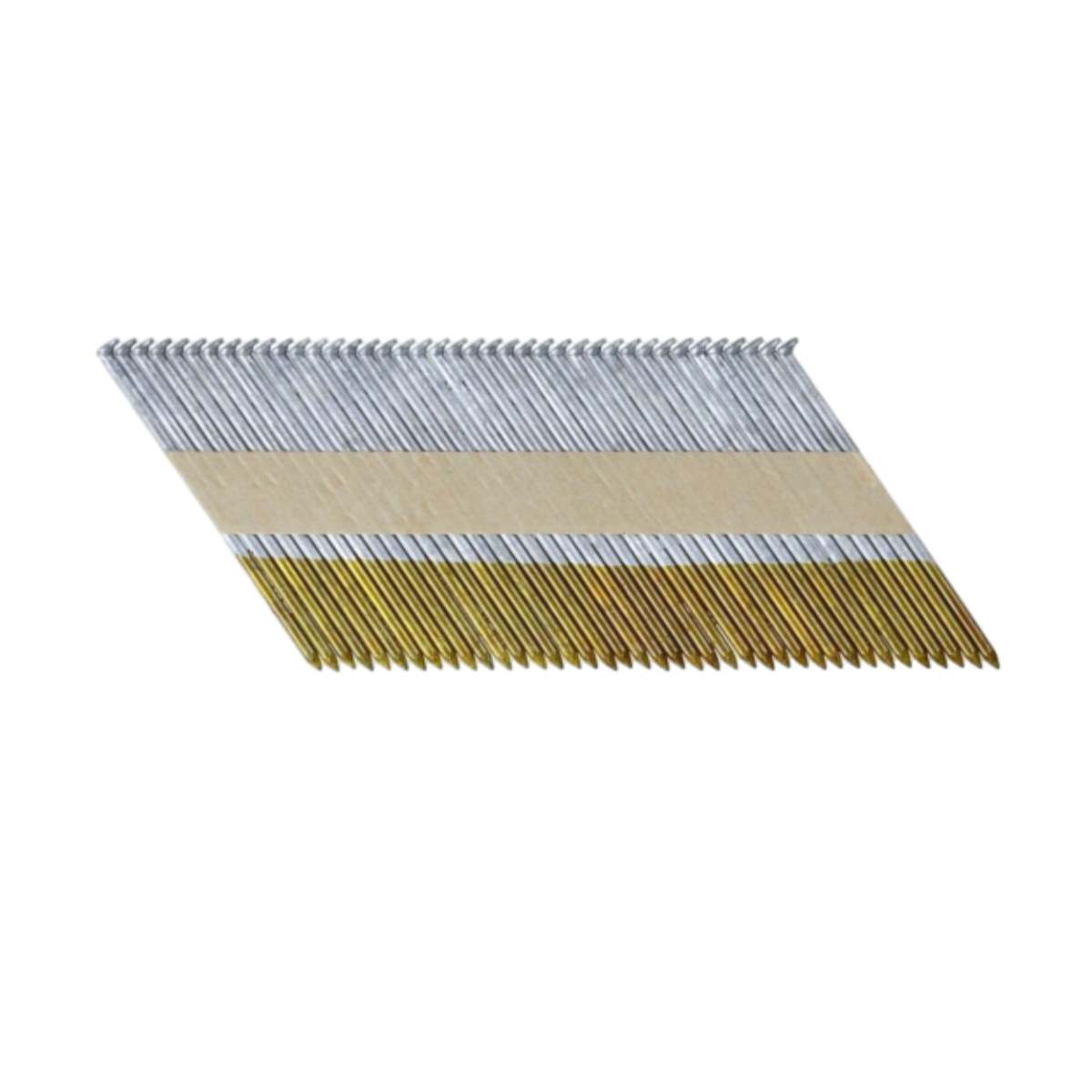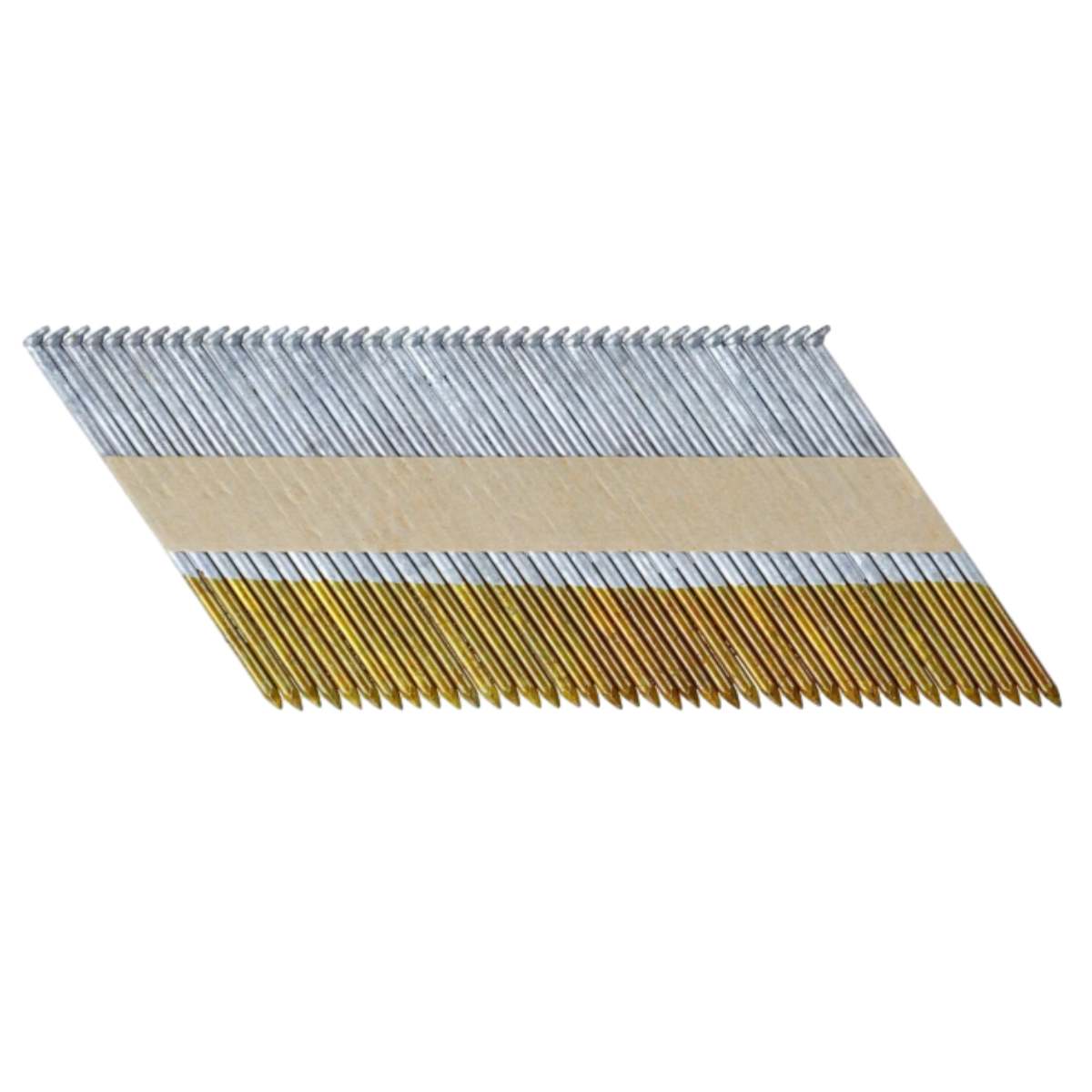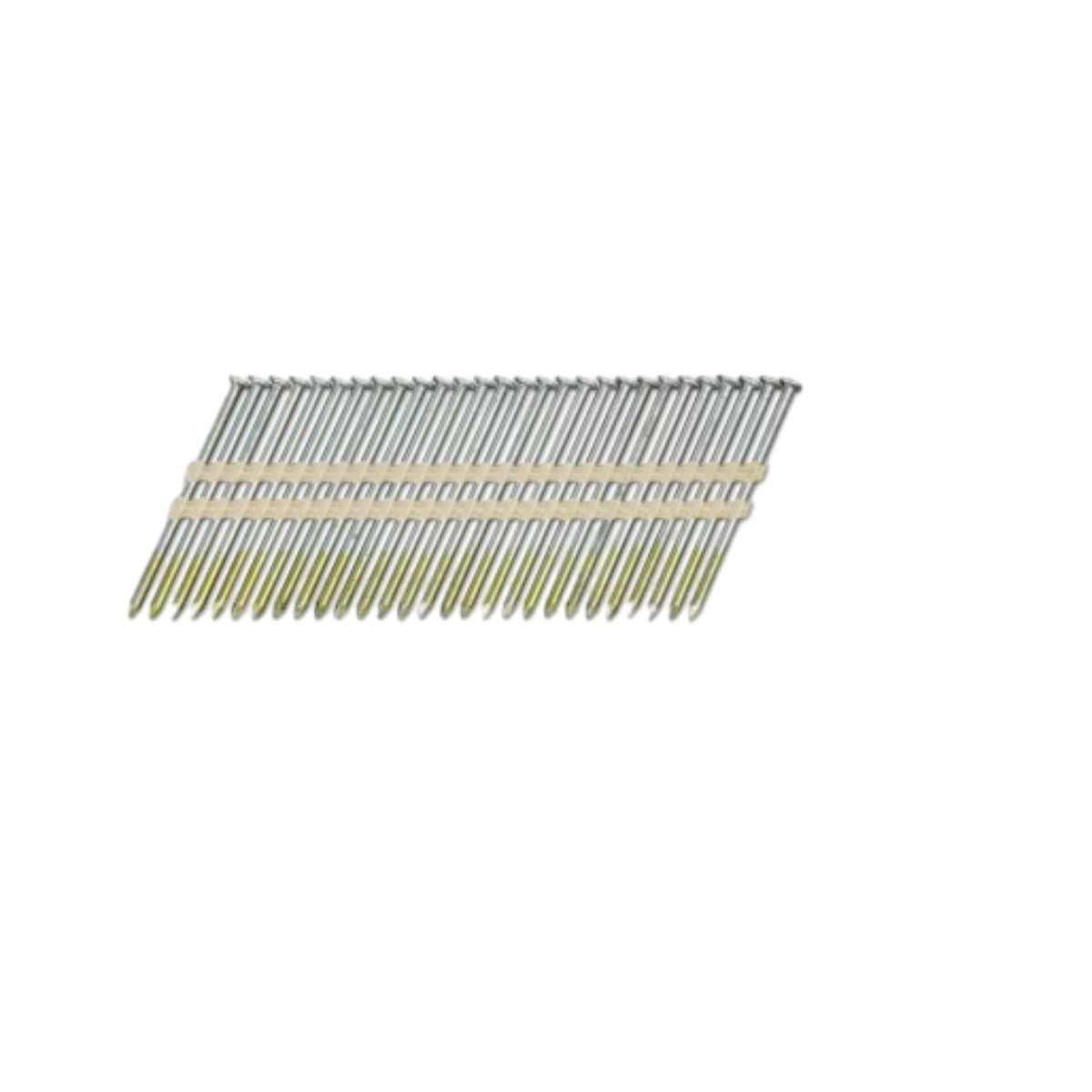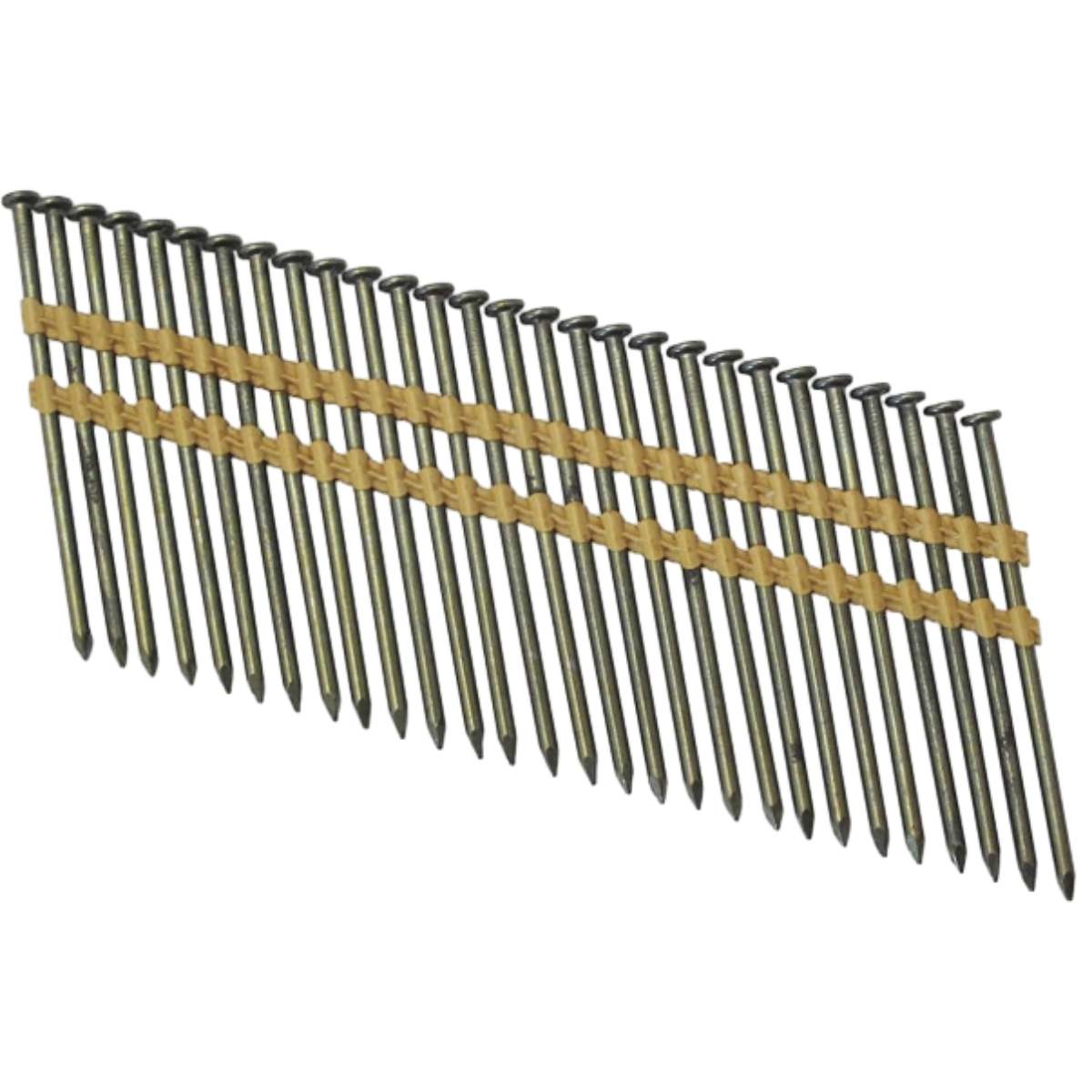Fast & Strong Stick Nails for Secure Wood Projects & DIY
8 月 . 23, 2025 01:40
Introduction to Precision Fastening and Industry Trends
In demanding industrial environments, the integrity and longevity of fastening solutions are paramount. From heavy machinery to critical infrastructure, the choice of fastener directly impacts operational safety, efficiency, and maintenance cycles. Among these critical components, the Stick Nail stands out as a specialized, high-performance fastening solution engineered to meet the stringent requirements of diverse B2B applications.
Current industry trends emphasize several key areas influencing the development and application of advanced fasteners. First, the push for enhanced material science continuously yields alloys with superior tensile strength, fatigue resistance, and corrosion immunity, allowing fasteners to perform reliably under extreme conditions. Second, digitalization and IoT integration are leading to "smart" fastening systems, although less applicable to a simple mechanical component like a nail, the overarching trend pushes for greater precision in manufacturing and stricter quality control protocols. Third, sustainability initiatives are driving demand for fasteners with extended service lives, reducing the frequency of replacement and associated waste, alongside more environmentally friendly manufacturing processes. Finally, the rapid expansion of renewable energy infrastructure (wind, solar, hydropower) and advanced manufacturing facilities necessitates fasteners that can withstand dynamic loads, harsh outdoor exposure, and complex thermal cycling. These trends underscore the critical need for a fastening solution like the Stick Nail that delivers consistent, verifiable performance.
This article delves into the technical intricacies, manufacturing excellence, diverse applications, and inherent advantages of the Stick Nail, providing B2B decision-makers and engineers with comprehensive insights necessary for optimal procurement and implementation strategies.
Manufacturing Process Flow for the Stick Nail
The production of a high-quality Stick Nail is a multi-stage process involving precision engineering and rigorous quality control. Each step is critical to ensuring the final product meets stringent performance and durability specifications.
Detailed Process Steps:
- Material Selection and Preparation: The foundation of a durable Stick Nail lies in its material. Typically, high-carbon steel, alloy steel (e.g., 40Cr, 42CrMo), or specific stainless steel grades (e.g., 304, 316 for corrosion resistance) are used. Raw material, usually in wire or rod form, undergoes initial inspection for chemical composition and mechanical properties to ensure compliance with standards such as ASTM A29/A29M or EN 10083.
- Cutting and Cold Forging: The raw material is precisely cut to the required length. Subsequently, a multi-stage cold forging process shapes the nail's head, shank, and point. This process enhances the material's grain structure, improving its tensile strength and fatigue resistance without requiring material removal, thus conserving material and energy.
- Thread Rolling/Shank Formation: For nails requiring specific shank patterns or self-tapping capabilities, a thread rolling machine forms the threads without cutting, further strengthening the material in these critical areas. For smooth shank nails, this step ensures dimensional accuracy and surface finish.
- Heat Treatment: To achieve optimal hardness and ductility, nails undergo a controlled heat treatment process. This typically involves quenching (heating to high temperatures and then rapidly cooling) followed by tempering (reheating to a lower temperature). This refines the microstructure, significantly increasing the nail's strength and toughness. Processes adhere to standards like ISO 898-1 for mechanical properties of fasteners.
- Surface Finishing: Depending on the application, nails may receive various surface treatments. Common finishes include galvanization (hot-dip or electro-galvanization for superior corrosion resistance, complying with ASTM A153), phosphating, or specialized coatings for enhanced friction characteristics or chemical resistance. This step extends service life and improves performance in specific environmental conditions.
-
Quality Control and Testing: Throughout the manufacturing process, and especially after finishing, rigorous quality control is performed. This includes:
- Dimensional accuracy (ANSI B18.6.1 for nail dimensions).
- Tensile strength and shear strength tests.
- Hardness testing (Rockwell, Vickers).
- Corrosion resistance testing (salt spray test, ASTM B117).
- Microstructural analysis.
- Fatigue testing for high-stress applications.
- Packaging: Nails are packaged to prevent damage during transit and to facilitate efficient handling on-site. Packaging methods are designed to protect surface finishes and maintain product integrity.
The service life of a Stick Nail, when properly specified and installed, can extend beyond 20-30 years in non-corrosive environments and 10-15 years even in challenging conditions, thanks to advanced materials and coatings. Target industries benefiting from these advantages include petrochemical, metallurgy, water supply & drainage, heavy construction, and automotive manufacturing. Specific advantages realized in typical application scenarios include significant energy saving by reducing structural fatigue and superior corrosion resistance, minimizing maintenance downtime and replacement costs.

Image 1: Illustrative example of high-precision manufacturing for a Stick Nail.
Technical Specifications and Performance Parameters
Understanding the precise technical specifications of a Stick Nail is crucial for engineers to ensure optimal performance and structural integrity in their designs. These parameters directly influence the fastener's load-bearing capacity, environmental resilience, and longevity.
Typical Stick Nail Specification Table:
| Parameter | Standard Specification | Notes |
|---|---|---|
| Material Grade | High Carbon Steel (e.g., C1045), Alloy Steel (e.g., 40Cr), Stainless Steel (e.g., 304, 316, Duplex 2205) | Selected based on strength and corrosion resistance requirements. |
| Tensile Strength (UTS) | Min. 800 MPa (116 ksi) for high-carbon/alloy steel | Critical for resistance to pulling forces. Varies by material. |
| Yield Strength | Min. 640 MPa (93 ksi) for high-carbon/alloy steel | Point at which permanent deformation begins. |
| Hardness (HRC) | 30-40 HRC (for heat-treated steel) | Resistance to indentation and abrasion. |
| Corrosion Resistance | ASTM B117 Salt Spray: 500-1000 hrs (Galvanized), >2000 hrs (Special Coatings/Stainless Steel) | Essential for outdoor or chemical exposure; varies by coating/material. |
| Shear Strength | Typ. 400-600 MPa | Resistance to forces perpendicular to the shank. |
| Diameter Range | 3 mm to 12 mm (0.125" to 0.5") | Standard and custom sizes available. |
| Length Range | 25 mm to 300 mm (1" to 12") | Standard and custom lengths available. |
| Head Type | Flat Head, Countersunk, Dome Head, Special Designs | Influences bearing surface and aesthetic. |
| Shank Type | Smooth, Ring Shank, Screw Shank (Twisted) | Affects withdrawal resistance. Ring shank for highest resistance. |
These parameters, often validated through ISO 17025 accredited laboratory testing, ensure that each Stick Nail delivered meets the precise engineering specifications required for its intended application. Adherence to international standards like ASTM, DIN, and ISO is a hallmark of authoritative manufacturing and a guarantee of predictable performance.
Application Scenarios and Technical Advantages
The versatility and robust performance of the Stick Nail make it indispensable across a spectrum of demanding industrial applications. Its technical advantages translate directly into enhanced operational safety, reduced downtime, and lower lifecycle costs for businesses.
Typical Application Scenarios:
- Heavy Construction and Infrastructure: Used in securing timber frames, scaffolding, formwork, and non-structural elements where high shear and withdrawal resistance are critical. Its robustness ensures structural integrity in high-stress points within large-scale civil engineering projects, including bridges and tunnels.
- Petrochemical and Chemical Processing Plants: In environments prone to aggressive chemical exposure and high temperatures, stainless steel or specially coated Stick Nail variants are crucial for fastening non-load-bearing elements, cable trays, and insulation panels. Their superior corrosion resistance prevents premature failure and costly repairs.
- Metallurgy and Heavy Manufacturing: Employed in assembly lines for fastening components in heavy machinery, conveyor systems, and industrial ovens. The high tensile strength withstands significant vibration and static loads, ensuring operational continuity.
- Water Supply & Drainage Systems: For securing piping, conduit supports, and access panel fixtures in both fresh and wastewater treatment facilities, where resistance to moisture and potential chemical attack is paramount. Galvanized or stainless steel options provide longevity.
- Renewable Energy Sector: In wind turbine towers for internal component fixation, solar panel framing, and hydroelectric dam access structures, requiring fasteners that endure extreme weather conditions, UV exposure, and dynamic loading without degradation.
Technical Advantages:
- Exceptional Shear and Tensile Strength: Engineered from high-grade materials and optimized through cold forging and heat treatment, the Stick Nail provides superior resistance to both shear forces (perpendicular to the shank) and tensile forces (pulling along the shank). This ensures robust connections capable of withstanding significant operational stresses.
- Superior Corrosion Resistance: Available with various protective coatings (e.g., hot-dip galvanization, specialized polymer coatings) or in intrinsically corrosion-resistant stainless steel alloys. This extends the fastener's life in harsh environments, reducing the need for premature replacement and associated maintenance costs.
- Precision Engineering for Optimal Fit: Manufactured to tight dimensional tolerances, ensuring a consistent fit and reliable performance. This precision minimizes installation issues and maximizes holding power, critical for maintaining structural integrity over time.
- Extended Service Life and Reduced Maintenance: The combination of high-quality materials, advanced manufacturing processes, and protective finishes results in a fastener with an extended service life. This reduces the frequency of inspections, repairs, and replacements, leading to substantial long-term cost savings and improved operational uptime.
- Cost-effectiveness over Lifecycle: While initial investment might be slightly higher than standard fasteners, the durability, reliability, and reduced maintenance requirements of the Stick Nail offer a significantly lower total cost of ownership (TCO) over the product's lifecycle.

Image 2: Stick Nails deployed in a heavy industrial fastening application.
Vendor Comparison and Customization Solutions
Choosing the right supplier for specialized fasteners like the Stick Nail is as critical as selecting the fastener itself. B2B purchasers must evaluate vendors not just on price, but on a comprehensive set of criteria that ensures product quality, reliability, and long-term support. Moreover, the ability to provide customized solutions can be a significant differentiator.
Key Considerations for Vendor Comparison:
| Criterion | Premium Vendor (e.g., Hebei Metals) | Standard Vendor |
|---|---|---|
| Material Quality & Sourcing | Certified, traceable raw materials (e.g., European/Japanese steel), robust incoming QC. | May use varied, less traceable sources; inconsistent material properties. |
| Manufacturing Precision | State-of-the-art cold forging, CNC, and heat treatment. Strict dimensional tolerances (ISO 2768-1 fine). | Less advanced machinery, wider tolerances, potential for inconsistencies. |
| Quality Certifications | ISO 9001:2015, CE marking, ASTM/DIN compliance, in-house ISO 17025 lab. | Basic ISO 9001, limited additional certifications or testing capabilities. |
| Customization Capabilities | Extensive R&D, engineering support, rapid prototyping for bespoke Stick Nail designs. | Limited to standard modifications, less engineering expertise. |
| Lead Times & Fulfillment | Transparent, predictable lead times. Expedited options, robust logistics network. | Variable lead times, less flexibility for urgent orders. |
| Technical Support & Warranty | Dedicated technical engineers, comprehensive warranty, responsive after-sales service. | Basic support, limited warranty, slower response to issues. |
| Pricing Model | Competitive pricing reflecting superior quality and TCO. Value-driven. | Lower upfront cost, but potential for higher TCO due to quality issues. |
Customized Solutions for Stick Nail Applications:
Many advanced industrial applications demand fasteners that deviate from standard specifications. A reputable Stick Nail manufacturer offers comprehensive customization capabilities, including:
- Unique Dimensions: Manufacturing Stick Nail products with non-standard lengths, diameters, or head profiles to fit specific structural or aesthetic requirements.
- Specialized Material Alloys: Utilizing exotic alloys such as Inconel, Monel, or advanced Duplex stainless steels for extreme temperature, highly corrosive, or unique magnetic property applications.
- Performance-Enhanced Coatings: Applying bespoke coatings like PTFE (Teflon), ceramic, or specialized anti-galling layers for reduced friction, enhanced chemical resistance, or electrical insulation.
- Specific Mechanical Properties: Tailoring heat treatment processes to achieve precise hardness, ductility, or fatigue resistance profiles that meet unique project demands.
- Application-Specific Testing: Conducting custom tests beyond standard protocols, such as extreme temperature cycling, vibration analysis, or specific chemical immersion tests, to validate performance under exact operating conditions.
Engaging with manufacturers that possess robust R&D and engineering support ensures that even the most complex fastening challenges can be addressed with optimized, purpose-built Stick Nail solutions.
Application Case Studies
Real-world applications demonstrate the critical role and superior performance of the Stick Nail in overcoming significant industrial challenges. These case studies highlight their reliability and the value they add to complex projects.
Case Study 1: Chemical Plant Expansion - Corrosion Resistance
A major petrochemical company embarked on expanding a new processing unit handling highly corrosive acids. Standard fasteners had shown premature degradation during pilot runs, leading to safety concerns and increased maintenance. After a detailed material analysis, custom-manufactured Stick Nail fasteners made from Duplex 2205 stainless steel with a specialized fluoropolymer coating were specified for non-structural paneling and equipment mounting. These nails offered superior resistance to chloride-induced stress corrosion cracking and general acid attack. The project lead reported a significant reduction in anticipated fastener degradation, contributing to a projected 30% increase in the unit's operational lifespan before major overhaul and enhancing overall plant safety. "The specialized Stick Nail was a game-changer for our corrosive environment. Its performance far exceeded our expectations," commented the Chief Engineer.

Image 3: Robust Stick Nails designed for demanding industrial applications.
Case Study 2: High-Speed Rail Track Expansion - Vibration and Fatigue Resistance
For a critical high-speed rail track expansion project, securing cable conduits, signal boxes, and minor structural supports along the trackside required fasteners capable of withstanding constant vibration, dynamic loads, and fluctuating temperatures. Standard nails proved inadequate, exhibiting loosening and material fatigue over time. The solution involved using heat-treated alloy steel Stick Nail fasteners with a ring shank design and an advanced polymer coating for enhanced grip and vibration dampening. Independent tests confirmed that these specialized nails maintained their integrity and holding power under simulated conditions equivalent to 20 years of continuous high-speed train passage. This reduced the need for frequent inspections and maintenance along thousands of kilometers of track, resulting in substantial operational savings and improved safety. The project manager noted, "The fatigue resistance of these Stick Nail components was paramount to our long-term reliability goals."
Case Study 3: Offshore Wind Farm Installation - Extreme Environmental Durability
An offshore wind farm development faced challenges in securing internal components within turbine nacelles and access platforms exposed to salt spray, high winds, and continuous motion. Fasteners needed to resist extreme corrosion and provide unwavering structural integrity. Custom 316L stainless steel Stick Nail products, designed with specific head configurations for secure attachment and a passivated finish, were chosen. These fasteners underwent accelerated weathering tests, including extended salt spray and UV exposure, exceeding international standards. The successful deployment of these nails ensured robust internal fixings, contributing to the extended operational lifespan of the turbines and minimizing the notoriously high costs associated with offshore maintenance. The client praised the manufacturer's ability to deliver fasteners that could withstand the unforgiving marine environment, highlighting the minimal corrosion observed during initial inspection periods.
Trustworthiness and Customer Support
Beyond product specifications, the trustworthiness of a supplier is built on transparent communication, reliable logistics, robust warranty, and dedicated customer support. For high-stakes industrial projects, these aspects are non-negotiable.
Frequently Asked Questions (FAQ) about Stick Nail:
- Q: What makes a Stick Nail superior to conventional nails?
- A: Stick Nails are engineered from higher-grade materials (e.g., heat-treated alloy steel, specific stainless steels) and undergo precise manufacturing processes like cold forging, heat treatment, and specialized coatings. This results in significantly higher tensile strength, shear resistance, corrosion immunity, and fatigue life compared to commodity nails, making them suitable for critical industrial applications.
- Q: Can Stick Nail products be customized for specific project needs?
- A: Absolutely. Reputable manufacturers offer extensive customization options, including variations in material composition, dimensions (length, diameter, head type), shank design (smooth, ring, screw), and specialized coatings (e.g., for chemical resistance, reduced friction). Engineering teams work closely with clients to develop bespoke solutions.
- Q: What are the typical lead times for Stick Nail orders?
- A: Lead times vary based on the order volume, level of customization, and material availability. Standard orders typically range from 2-4 weeks, while complex custom solutions may require 6-10 weeks, including design, prototyping, and testing phases. Expedited options are often available for urgent requirements.
- Q: What kind of warranty is offered on Stick Nail products?
- A: Our Stick Nail products come with a comprehensive warranty against manufacturing defects and material failures under normal operating conditions. Specific warranty terms vary by product line and application, typically ranging from 5 to 10 years, reflecting our confidence in product quality. Detailed warranty certificates are provided with each order.
Lead Time and Fulfillment:
We operate with streamlined production processes and robust supply chain management to ensure efficient order fulfillment. For standard Stick Nail products, lead times are typically 14-28 business days from order confirmation to dispatch. For customized solutions, lead times are determined during the engineering and quotation phase, providing a clear timeline from design to delivery. We maintain strategic stock levels of common materials to facilitate quicker turnarounds on urgent requirements and offer expedited shipping options globally.
Warranty Commitments:
Our commitment to quality is underscored by a robust warranty program. All Stick Nail products are warranted to be free from defects in material and workmanship for a specified period, typically 5-10 years, from the date of purchase when installed and used in accordance with our guidelines. This warranty covers manufacturing flaws and ensures product integrity under intended operational conditions. Any claims are handled promptly by our dedicated support team to minimize disruption.
Dedicated Customer Support:
We pride ourselves on providing unparalleled technical support and after-sales service. Our team of experienced engineers and customer service professionals is available to assist with product selection, technical specifications, installation guidance, and troubleshooting. We offer:
- Technical Consultations: Expert advice for optimal fastener selection and application.
- Order Tracking: Real-time updates on your order status from production to delivery.
- Post-Sales Assistance: Support for any issues, warranty claims, or additional technical queries after purchase.
- Documentation: Provision of all necessary certifications, test reports, and installation guides.
Our commitment is to be a reliable partner throughout the entire lifecycle of your project, ensuring seamless integration and long-term performance of our Stick Nail solutions.

Image 4: Diverse range of Stick Nails ready for quality assurance and packaging.
Conclusion
The Stick Nail represents a critical component in modern industrial fastening, offering a blend of strength, durability, and specialized performance unmatched by conventional alternatives. Its comprehensive manufacturing process, adherence to rigorous international standards, and capacity for customization make it an ideal choice for engineers and procurement specialists facing complex challenges in sectors ranging from petrochemical to renewable energy. By prioritizing quality materials, advanced production techniques, and robust customer support, high-end manufacturers ensure that each Stick Nail delivers exceptional value and contributes to the long-term success and safety of critical industrial applications. Choosing the right Stick Nail is an investment in reliability, efficiency, and enduring performance.
References
- American Society for Testing and Materials (ASTM) International. "ASTM A153/A153M-16: Standard Specification for Zinc Coating (Hot-Dip) on Iron and Steel Hardware."
- International Organization for Standardization (ISO). "ISO 898-1: Mechanical properties of fasteners made of carbon steel and alloy steel."
- National Institute of Standards and Technology (NIST). "Standards for Fasteners: A Review and Guide for Manufacturers."
- Society of Automotive Engineers (SAE) International. "J429: Mechanical and Material Requirements for Externally Threaded Fasteners."
- British Standards Institution (BSI). "BS EN 10083-1: Steels for quenching and tempering."
Copyright © 2025 Hebei Minmetals Co., Ltd. All Rights Reserved. Sitemap | Privacy Policy



















